Genesis 2:1-3 NIV
Thus the heavens and the earth were completed in all their vast array.
Genesis 2:1-3 NIV
By the seventh day God had finished the work he had been doing; so on the seventh day he rested from all his work. Then God blessed the seventh day and made it holy, because on it he rested from all the work of creating that he had done.
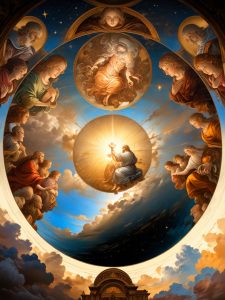
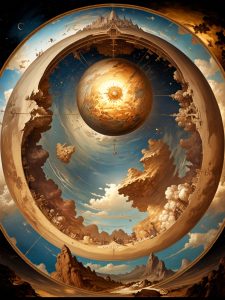
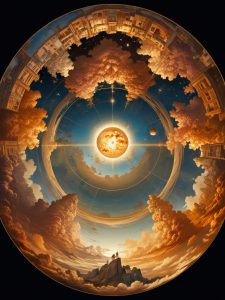
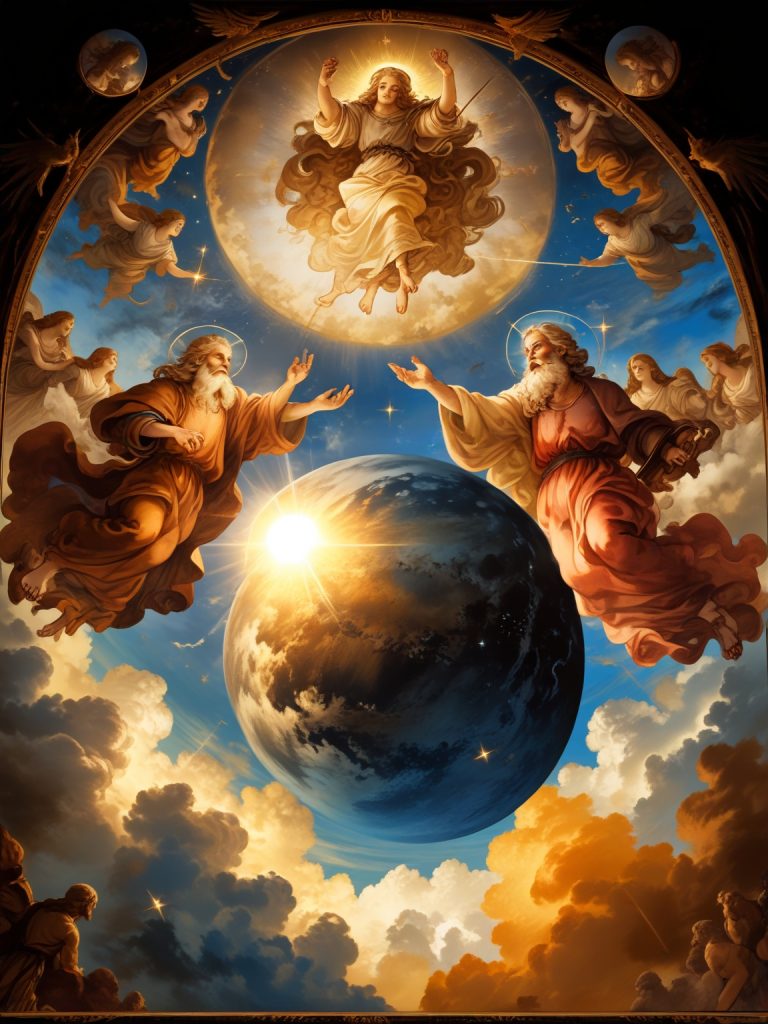
Hello everyone, today we’re going to explore this lovely section from Genesis!
Verse 1: “Thus the heavens and the earth were completed in all their vast array.”
This verse is like a big exhale after an amazing creation project. Imagine working with vibrant colors and intricate details to create a masterpiece, then standing back to admire it all. That’s what’s happening. God is the creator of the sky, the earth, and everything in it, including the biggest galaxies and the tiniest grass blades. It is a wonderful and varied creation that shows off God’s incredible power and inventiveness.
Verse 2 states that “God rested from all his work on the seventh day, having completed it by then.” work.”
Some people may be wondering if God gets fatigued. Not quite, though. We learn something significant about God’s nature from this verse. He doesn’t require rest in the same manner as humans, but this establishes a routine. He takes the seventh day off to celebrate his achievements. It’s a day to be content and to pause and acknowledge the kindness and beauty of creation.
Verse 3: “Then God blessed the seventh day and made it holy, because on it he rested from all the work of creating that he had done.”
Now, here’s the main lesson! God blesses the day of rest, not simply rests. He gives it unique meaning—a day dedicated to something other than simply finishing our to-do list. Here, the notion is that keeping a Sabbath, or rest day, is ingrained in the very fabric of creation. It’s not merely an advice; rather, it’s a gift from God, an opportunity to take stock of our life, renew our energy, and give thanks for everything that we have.
What does this mean in the present for us, then? The idea still holds true even though we might not work six days and take a seventh day off. Everybody needs that period of time to unwind, unplug from life’s hectic schedule, and re-establish their connection to what really matters. It’s an opportunity to be in the moment with God, our loved ones, and ourselves.
All things considered, this chapter is a lovely reminder of God’s creative ability, the value of relaxation, and the blessing of the Sabbath. It’s a reminder to make time in our own life to take a moment to reflect, take a deep breath, and acknowledge the amazing world we live in.
Genesis 2:4-7 NIV
This is the account of the heavens and the earth when they were created, when the Lord God made the earth and the heavens.
Genesis 2:4-7 NIV
Now no shrub had yet appeared on the earth and no plant had yet sprung up, for the Lord God had not sent rain on the earth and there was no one to work the ground, but streams came up from the earth and watered the whole surface of the ground. Then the Lord God formed a man from the dust of the ground and breathed into his nostrils the breath of life, and the man became a living being.
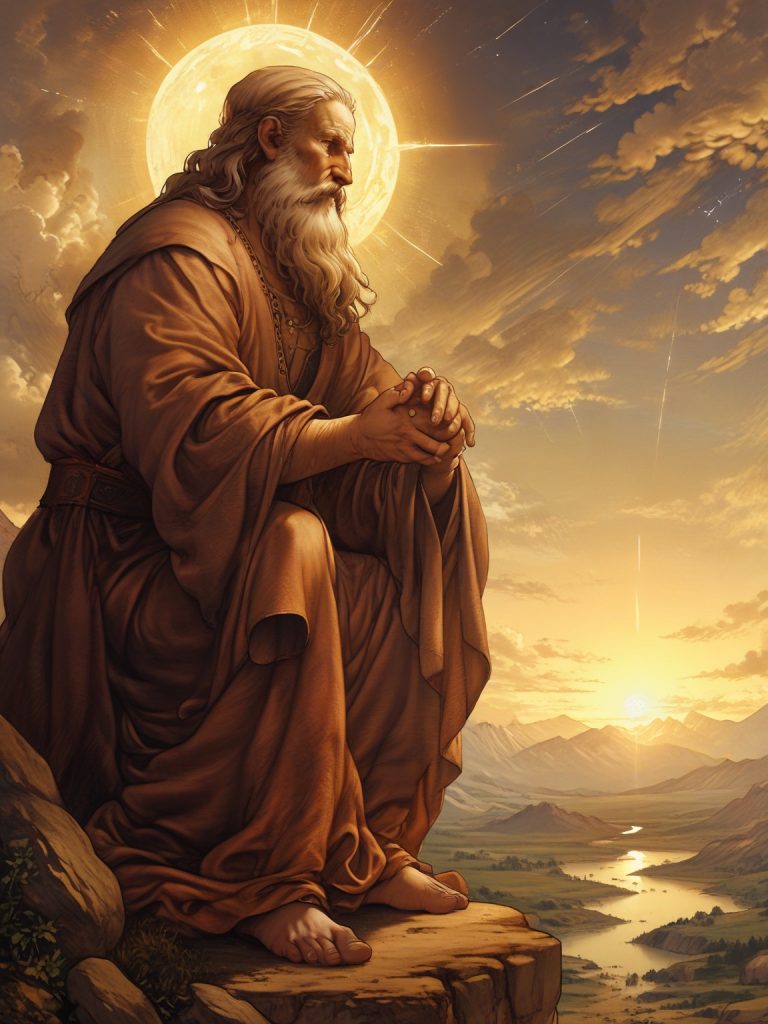
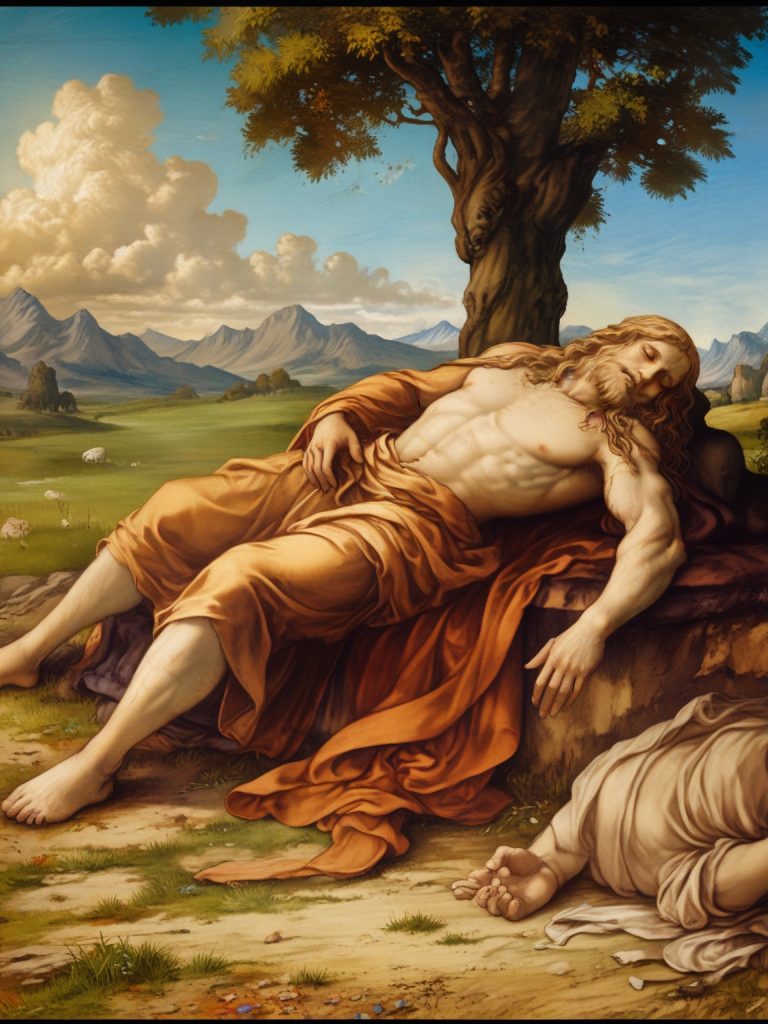
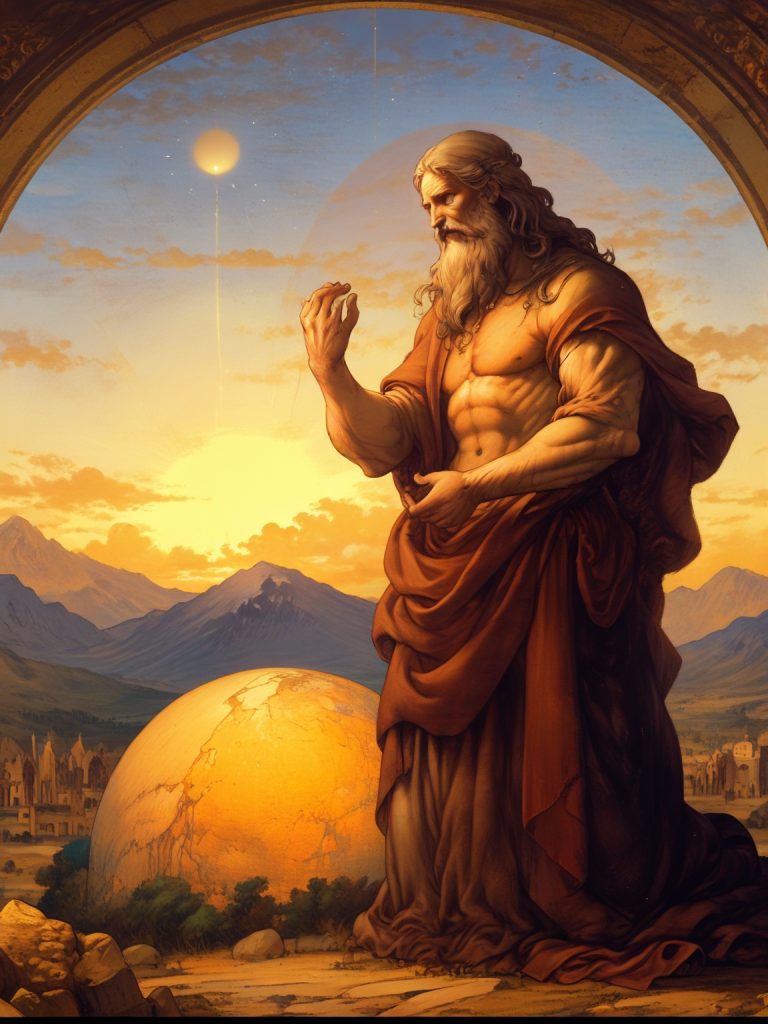
Hello everyone, let’s read Genesis 2:4–7 in our Bibles . This section provides an amazing look into the origins of humanity!
Verse 4: “This is the account of the heavens and the earth when they were created…”
This verse introduces a more thorough description of creation, serving as a sort of title card. It serves as a reminder that God is the creator of everything we see, including the richness of our world and the immensity of space.
Verse 5: “Now no shrub had yet appeared on the earth and no plant had yet sprung up…”
The situation starts to pick up here. We witness a newly formed Earth that has the capacity for life but isn’t yet overflowing with the verdant vegetation we are familiar with. It depicts a picture. of a world waiting, waiting for something special.
Verse 6: “…for the Lord God had not sent rain on the earth and there was no one to work the ground, but streams came up from the earth and watered the whole surface of the ground.”
There are a few things to consider in this verse. It first emphasizes the part God plays in keeping life alive. Rain is not a coincidence; it is an essential component of plant growth. It is in God’s hands. Secondly, we witness an other type of irrigation system — streams emerging from the ground. It serves as a reminder of God’s inventiveness and capacity to supply His creation in unanticipated ways.
Verse 7: “Then the Lord God formed a man from the dust of the ground and breathed into his nostrils the breath of life, and the man became a living being.”
The creation of humanity is the diamond in this passage’s crown! God creates Adam not just from something magnificent but also from the soil. It serves as a reminder of our interconnectedness with nature and our status as God’s created beings. The most incredible portion, though, is when God gives Adam life. This is not merely bodily animation; rather, it is the beginning of something greater—a soul, a link to the divine.
This verse is a lovely reminder of God’s omnipotence, His concern for the natural world, and the unique role that humans play in it. Although we are made of earth, we carry the breath of God.
Genesis 2:8-9 NIV
Now the Lord God had planted a garden in the east, in Eden; and there he put the man he had formed. The Lord God made all kinds of trees grow out of the ground—trees that were pleasing to the eye and good for food. In the middle of the garden were the tree of life and the tree of the knowledge of good and evil.
Genesis 2:8-9 NIV
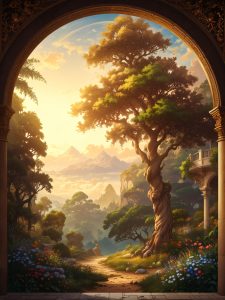
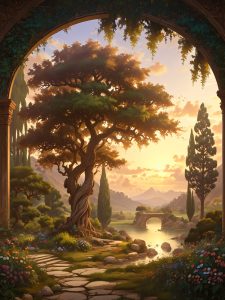

This passage transports us to the Garden of Eden, a genuinely perfect place! Let’s go right into Genesis 2:8–9 to discover the riches it contains.
Verse 8: “Now the Lord God had planted a garden in the east, in Eden; and there he put the man he had formed.”
Envision the most exquisite park you have ever seen, brimming with vitality and awe. Now turn that up to a thousand! That is Eden’s Garden. For Adam, the first human, God constructs this ideal area, much like a caring father setting up a playroom. It’s a place to flourish and directly encounter the joy of God’s creation, not just somewhere to dwell.
Verse 9: “The Lord God made all kinds of trees grow out of the ground—trees that were pleasing to the eye and good for food. In the middle of the garden were the tree of life and the tree of the knowledge of good and evil.”
This verse conveys a sense of plenty. Every kind of delectable and exquisite tree imaginable is planted by God. It is evidence of His kindness and desire for Adam to live a fully fulfilled life. The twist comes in the form of two unique trees in the middle: the knowledge of good and evil and the tree of life. These trees allude to the garden’s greater meaning. It’s more than just a playground; it’s a place where decisions will be made and Adam will get the chance to learn what it means to be truly free and responsible.
Some people obsess over the minute details of these trees, but what really counts is the overall picture. God makes the ideal world for people to live in—one that is abundant, free, and presents options. It’s a tale about faith and the possibility of a profound and meaningful bond between God and His creation.
Genesis 2:10-14 NIV
A river watering the garden flowed from Eden; from there it was separated into four headwaters. 11The name of the first is the Pishon; it winds through the entire land of Havilah, where there is gold. (The gold of that land is good; aromatic resin and onyx are also there.) The name of the second river is the Gihon; it winds through the entire land of Cush. The name of the third river is the Tigris; it runs along the east side of Ashur. And the fourth river is the Euphrates.
Genesis 2:10-14 NIV
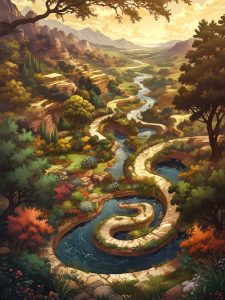
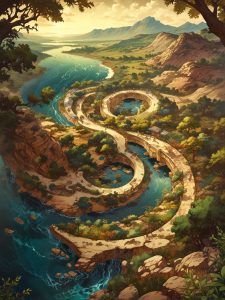
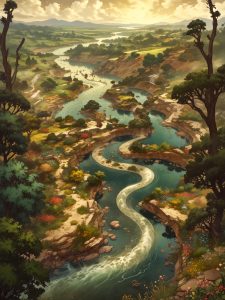
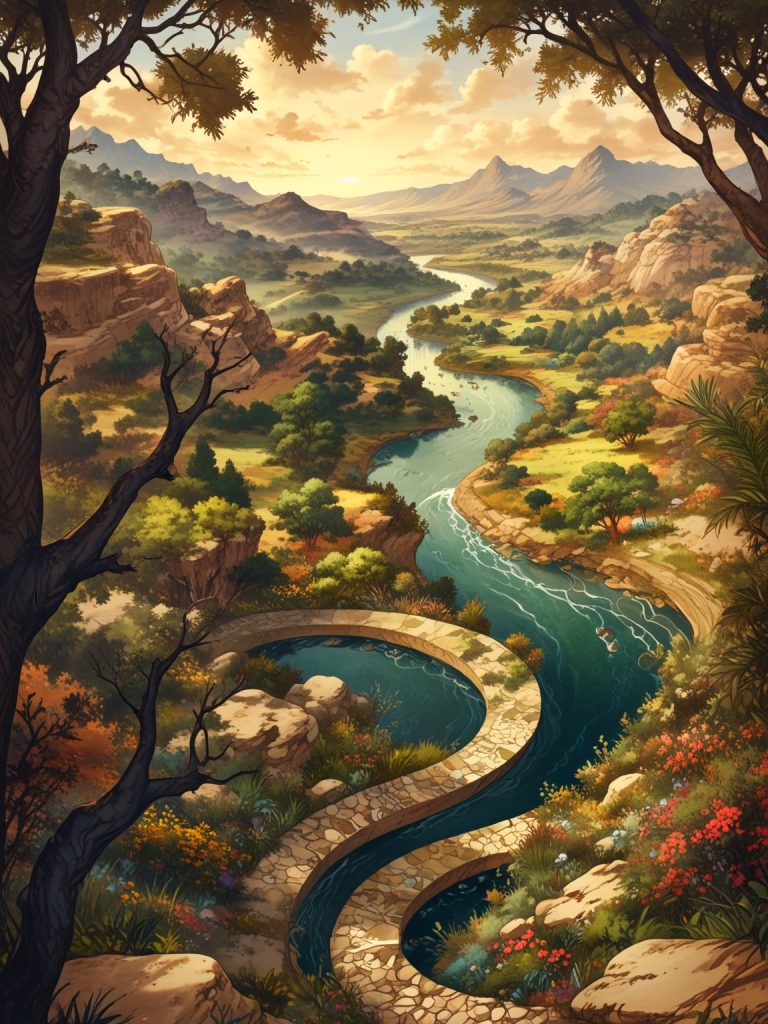
These rivers in Genesis 2:10–14 have a deeper significance than just a geography lesson, despite the passage’s apparent didactic nature!
Verse 10: “A river watering the garden flowed from Eden; from there it was separated into four headwaters.”
This gives us a peek at the garden’s incredible water supply. It’s a flowing river instead of a still pond, signifying plenty and life. It’s interesting to note that this river divides into four when it leaves Eden. Some people interpret this as a metaphor for God’s blessings spreading throughout the earth and emerging from the garden.
Verses 11-14: “The names of the rivers are…”
The four rivers are indicated now: Pishon, Gihon, Tigris, and Euphrates. These names are not at random! The people of that era were familiar with these rivers, which were real. While some academics think that the reference to these particular rivers points to a possible site for Eden, the claim is not entirely accurate.
The important lesson here is that these rivers function as arteries, distributing Eden’s life-giving water across the world. They stand for the possibility that everyone on the planet could experience God’s benefits.
So, what does this mean for us?
It serves as a reminder that God’s goodness isn’t limited to particular locations like Eden. We are called to share in the gifts that radiate from him. God’s kindness and grace can be shown to the world through us.
It’s possible that you’re feeling far from Eden’s perfection and beauty. That’s alright! This verse serves as a reminder that although our garden isn’t flawless, God’s blessings are nevertheless abundant. By showing others the love of God, we can serve as bearers of those blessings.
Genesis 2:15-17 NIV
The Lord God took the man and put him in the Garden of Eden to work it and take care of it. And the Lord God commanded the man, “You are free to eat from any tree in the garden; but you must not eat from the tree of the knowledge of good and evil, for when you eat from it you will certainly die.”
Genesis 2:15-17 NIV

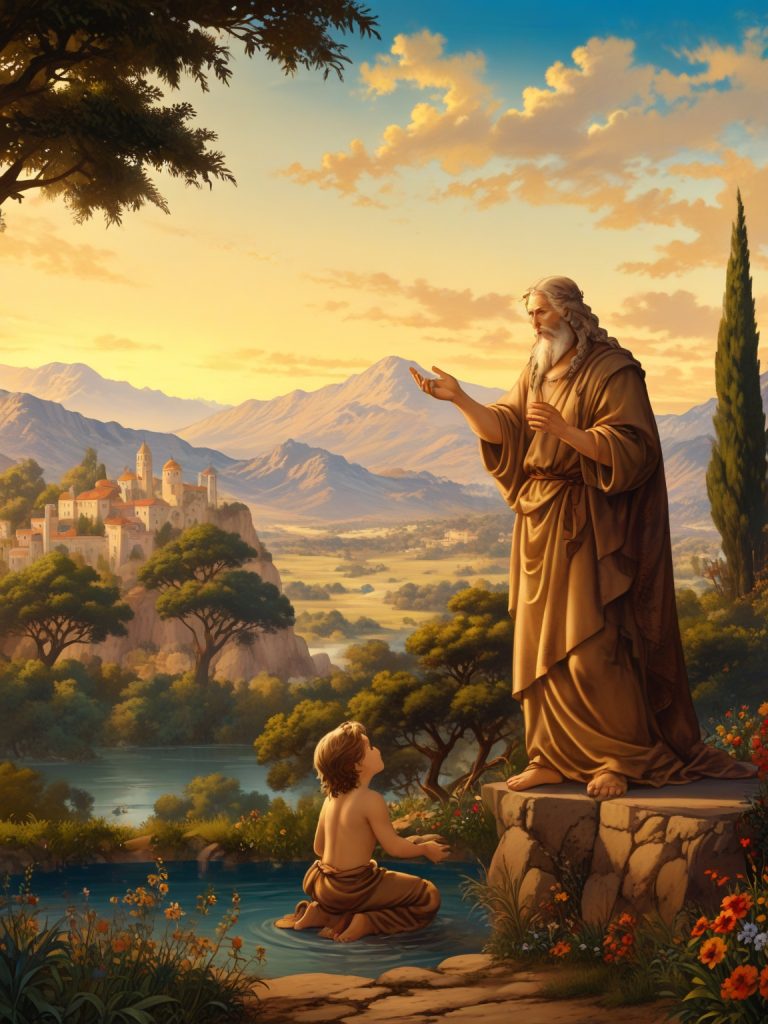
This chapter from Genesis 2:15–17 transports us back to the Garden of Eden and provides us with some crucial information about God’s purpose for creating humanity.
Verse 15: “The Lord God took the man and put him in the Garden of Eden to work it and take care of it.”
Here, a lovely collaboration is beginning to take shape. Adam is placed in the garden by God to take care of it, not only as a bystander. While taking care of the plants and appreciating the creation, work needs to be done. This is an opportunity to be a part of something incredible rather than a burden.
Verse 16: “And the Lord God commanded the man, “You are free to eat from any tree in the garden…”
God is so giving. Adam is surrounded by an abundance of mouthwatering food, which is evidence of His supply and desire for Adam to live a fulfilling life. This place offers freedom—the freedom to discover and relish the beauty of creation.
Verse 17: “…but you must not eat from the tree of the knowledge of good and evil, for when you eat from it you will certainly die.”
There’s a restriction in place right now. There is one tree that is forbidden: the tree of the knowledge of good and evil. This is about giving Adam a choice, not about God exercising control. Will he follow his own way or put his trust in God? The penalty for breaking the law is severe: death. But it’s crucial to keep in mind that this is a separation from God, the source of life, rather than only physical death.
So, what does this mean for us today?
We still have to make decisions even though we’re not in the Garden of Eden. Do we rely on God and His direction, or do we make our own decisions? God longs for a close relationship with us, but it is up to us to decide to pursue it.
Perhaps you’re feeling overpowered by all the options that life presents to you. This verse serves as a reminder that God is always present to guide and provide judgment and wisdom. We can ask God for the ability to make decisions that please Him and draw us nearer to Him.
Genesis 2.18-20 NIV
The Lord God said, “It is not good for the man to be alone. I will make a helper suitable for him.”
Now the Lord God had formed out of the ground all the wild animals and all the birds in the sky. He brought them to the man to see what he would name them; and whatever the man called each living creature, that was its name. So the man gave names to all the livestock, the birds in the sky and all the wild animals.
But for Adam no suitable helper was found.
Genesis 2.18-20 NIV
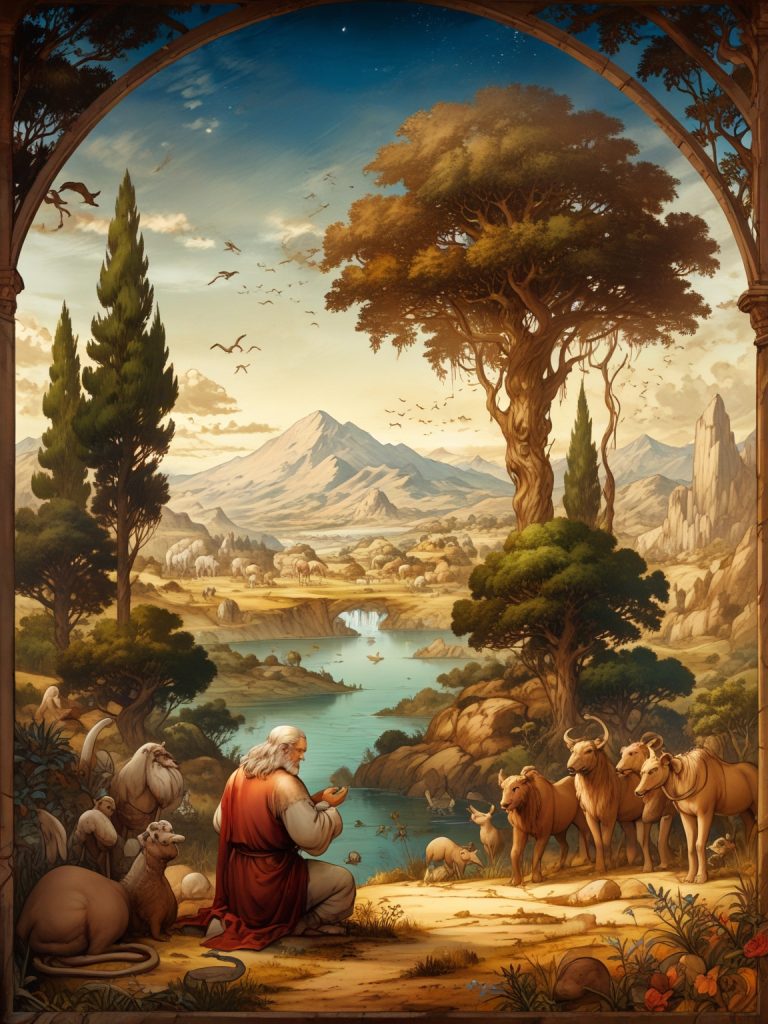
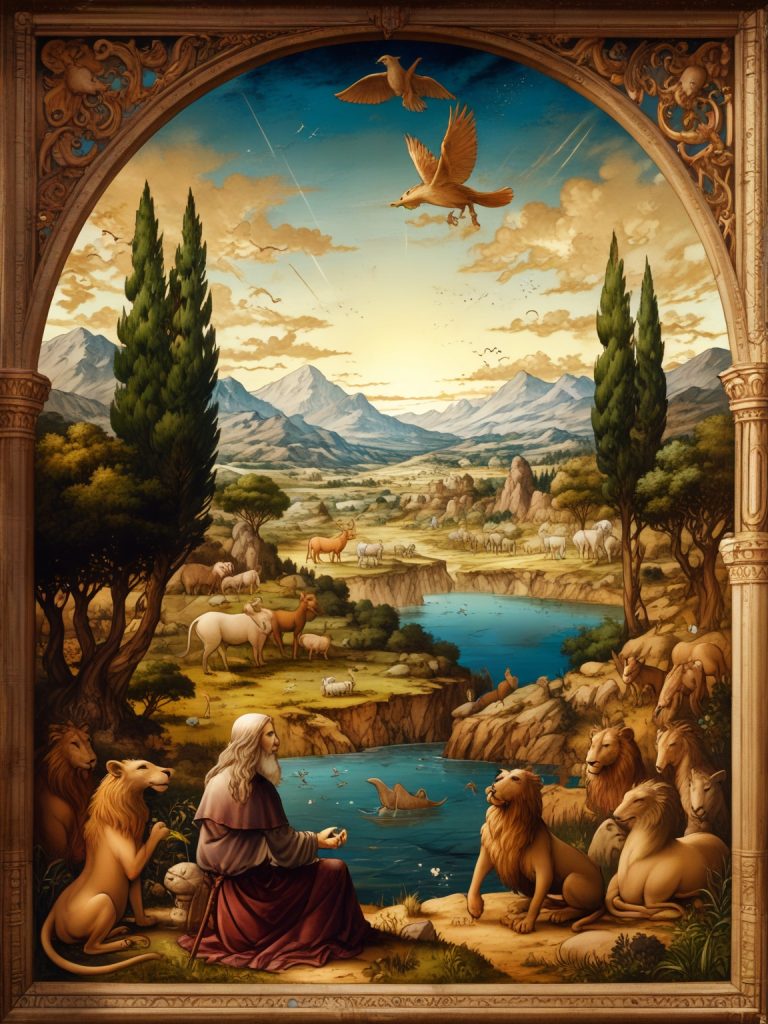
Let’s focus on Genesis 2:18–20! This text explores camaraderie, a basic human need.
Verse 18: “The Lord God said, ‘It is not good for the man to be alone. I will make a helper suitable for him.'”
God makes a lovely proclamation here. In the midst of creation, he sees Adam in the Garden, but something is lacking. God declares, “Man should not be left alone.” This is a very important fact. We were meant to be in relationships and to connect. In community, when we share life with others, we flourish.
Verse 19: “Now the Lord God had formed out of the ground all the wild animals and all the birds in the sky. He brought them to the man to see what he would name them; and whatever the man called each living creature, that was its name.”
All animals are brought to Adam by God. What an intriguing scene! Adam gets to engage with these incredible animals and demonstrate his lordship over the universe. But have you noticed anything? None of these animals, despite their abundance, can fully replace the need for friendship.
Verse 20: “So the man gave names to all the livestock, the birds in the sky and all the wild animals. But for Adam no suitable helper was found.”
Adam names the animals, playing his part, but the loneliness remains. Adam longs for a deep connection, a meeting of the minds and souls, something the animals cannot offer.
So, what does this mean for us today? This verse serves as a reminder that God longs for us to have fellowship. We are suited for close, meaningful bonds. God wants us to enjoy the delight of connection, whether it is with our spouse, family, or friends.It’s possible that you feel lonely or alone. The theme of this verse is one of hope. God desires for us to not be isolated. Engage, create connections, and foster your relationships. And never forget that the best friend you may have is none other than God.
Genesis 2:21-25 NIV
So the Lord God caused the man to fall into a deep sleep; and while he was sleeping, he took one of the man’s ribs and then closed up the place with flesh. Then the Lord God made a woman from the rib he had taken out of the man, and he brought her to the man.
The man said,
“This is now bone of my bones
and flesh of my flesh;
she shall be called ‘woman,’
for she was taken out of man.”
That is why a man leaves his father and mother and is united to his wife, and they become one flesh.
Adam and his wife were both naked, and they felt no shame.

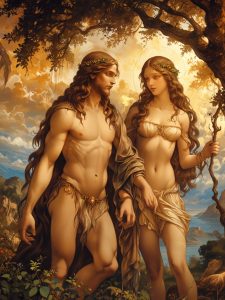

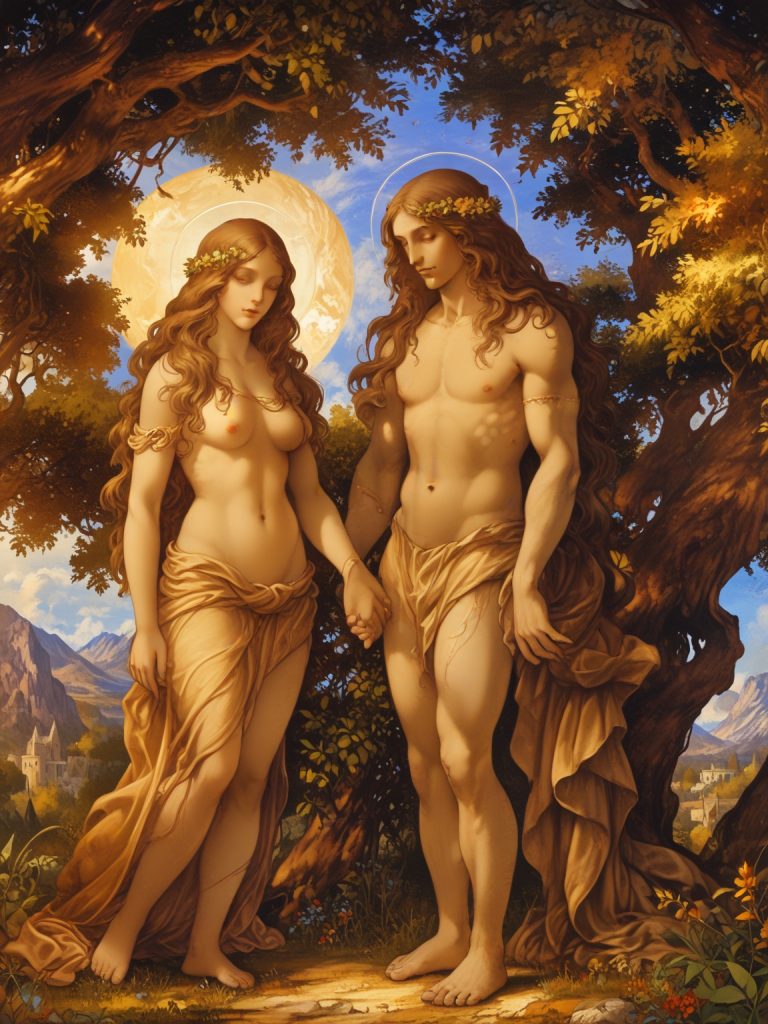
Genesis 2:21–25 tells a lovely tale of the creation of Eve, our first human companion.
Verse 21-22: “So the Lord God caused the man to fall into a deep sleep; and while he was sleeping, he took one of the man’s ribs and then closed up the place with flesh. Then the Lord God made a woman from the rib he had taken out of the man, and he brought her to the man.”
This is a very original and symbolic account of Eve’s creation. After gently putting Adam to sleep, God creates Eve by his side. This has a lovely lesson about cooperation and solidarity. Eve is not an afterthought; rather, she is an equal and intimate companion to Adam, born out of his whole being.
Verse 23: “The man said, ‘This is now bone of my bones and flesh of my flesh; she shall be called ‘woman,’ for she was taken out of man.'”
Adam wakes up to see Eve here. A strong connection and a sensation of instant recognition exist. He views her as a part of himself, not as something greater or distinct. He even calls her “woman,” a moniker that symbolizes their common humanity.
Verse 24: “That is why a man leaves his father and mother and is united to his wife, and they become one flesh.”
This verse hints at the future – the importance of marriage and family. It’s normal to move on from your parents and form a new family, and marriage is defined as the union of a husband and wife, who become “one flesh.” It’s a potent metaphor for the closeness and togetherness that God intended for marriage.
Verse 25: “Adam and his wife were both naked, and they felt no shame.”
Some people could take issue with this last verse. It only says that in their naivety, Adam and Eve had no shame in being nude. Before sin entered the Garden of Eden, there was a feeling of innocence and selflessness.
What does this passage mean for us today?
We are reminded by this story of the value and beauty of human connection, particularly in marriage. It’s an exhortation to value our relationships and to view them as fellow travelers and equals.
Perhaps you’re seeking love or are already in a relationship. The message of hope in this verse is that God longs for a genuine and profound relationship with us.
What we learn from Genesis 2?
Genesis’ account of creation serves as a reminder of God’s amazing love and plan for people. We were made to be in close relationship with our Creator, to care for our lovely planet, and to form connections with others. The world isn’t perfect anymore, yet hope still exists. God wants to spend time with us, and He extends an invitation to be our best friend. So let’s go forth this week, seeking a closer relationship with God and appreciating the relationships in our lives.









